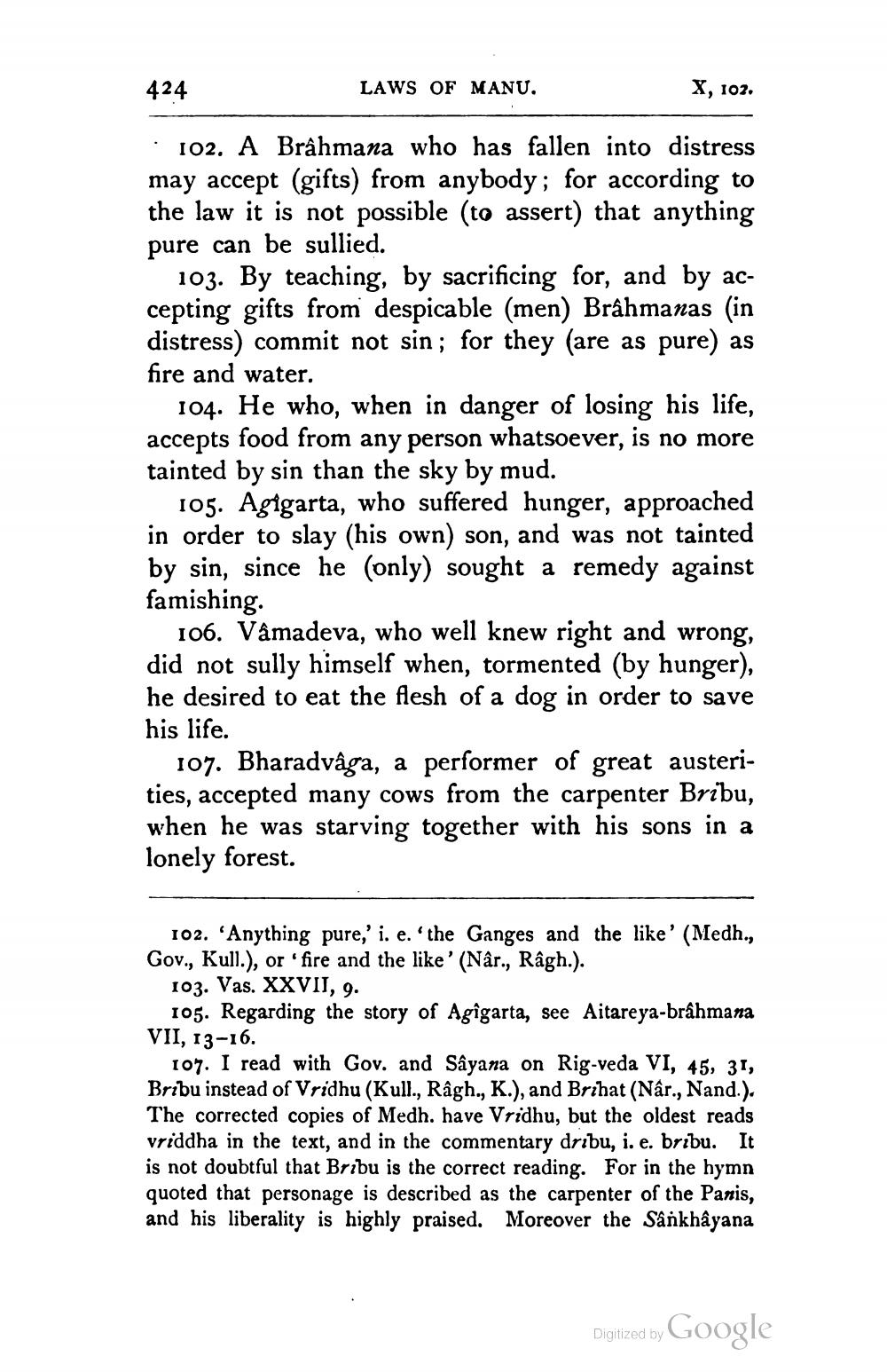________________
X, 102.
102. A Brahmana who has fallen into distress may accept (gifts) from anybody; for according to the law it is not possible (to assert) that anything pure can be sullied.
424
•
LAWS OF MANU.
103. By teaching, by sacrificing for, and by accepting gifts from despicable (men) Brâhmanas (in distress) commit not sin; for they (are as pure) as fire and water.
104. He who, when in danger of losing his life, accepts food from any person whatsoever, is no more tainted by sin than the sky by mud.
105. Agigarta, who suffered hunger, approached in order to slay (his own) son, and was not tainted by sin, since he (only) sought a remedy against famishing.
106. Vâmadeva, who well knew right and wrong, did not sully himself when, tormented (by hunger), he desired to eat the flesh of a dog in order to save his life.
107. Bharadvaga, a performer of great austerities, accepted many cows from the carpenter Bribu, when he was starving together with his sons in a lonely forest.
102. 'Anything pure,' i. e. 'the Ganges and the like' (Medh., Gov., Kull.), or 'fire and the like' (Nâr., Râgh.).
103. Vas. XXVII, 9.
105. Regarding the story of Agîgarta, see Aitareya-brâhmana VII, 13-16.
107. I read with Gov. and Sâyana on Rig-veda VI, 45, 31, Bribu instead of Vridhu (Kull., Râgh., K.), and Brihat (Nar., Nand.). The corrected copies of Medh. have Vridhu, but the oldest reads vriddha in the text, and in the commentary dribu, i. e. bribu. It is not doubtful that Bribu is the correct reading. For in the hymn quoted that personage is described as the carpenter of the Panis, and his liberality is highly praised. Moreover the Sânkhâyana
Digitized by Google




